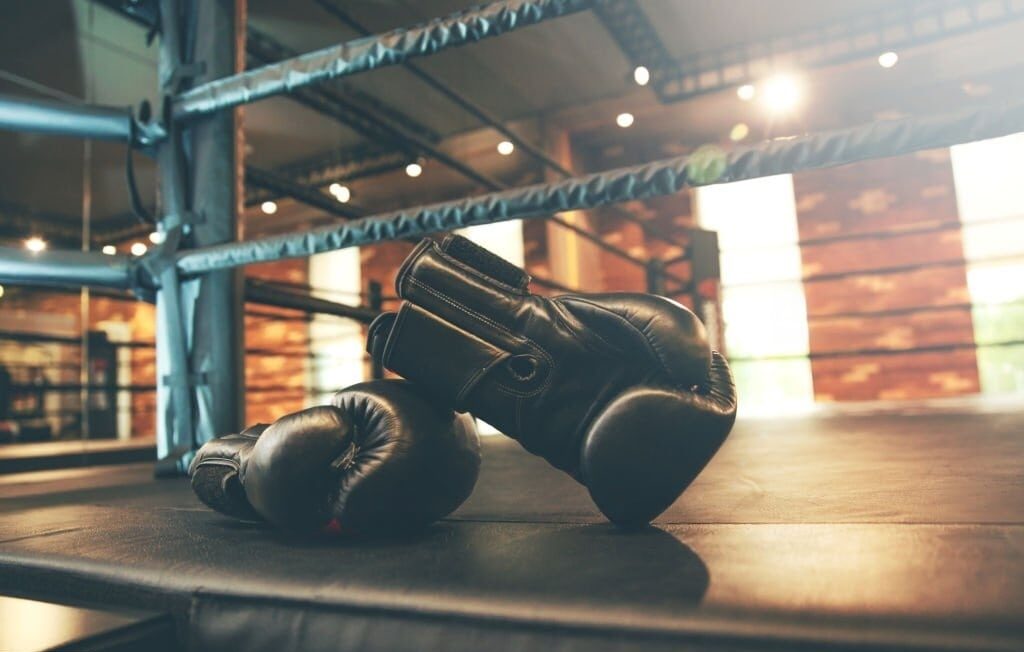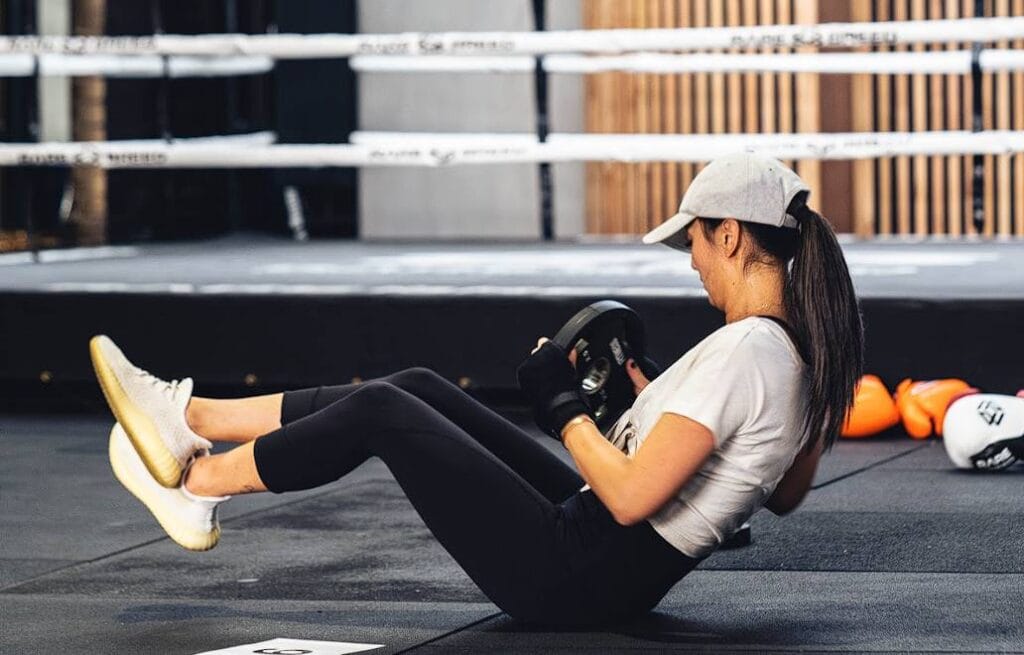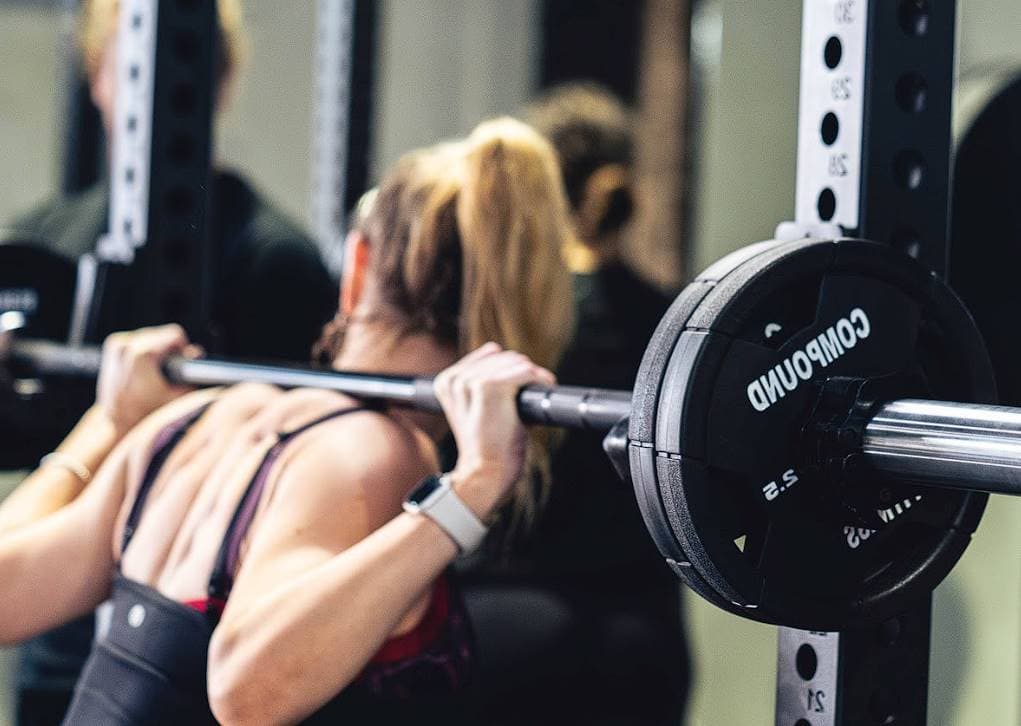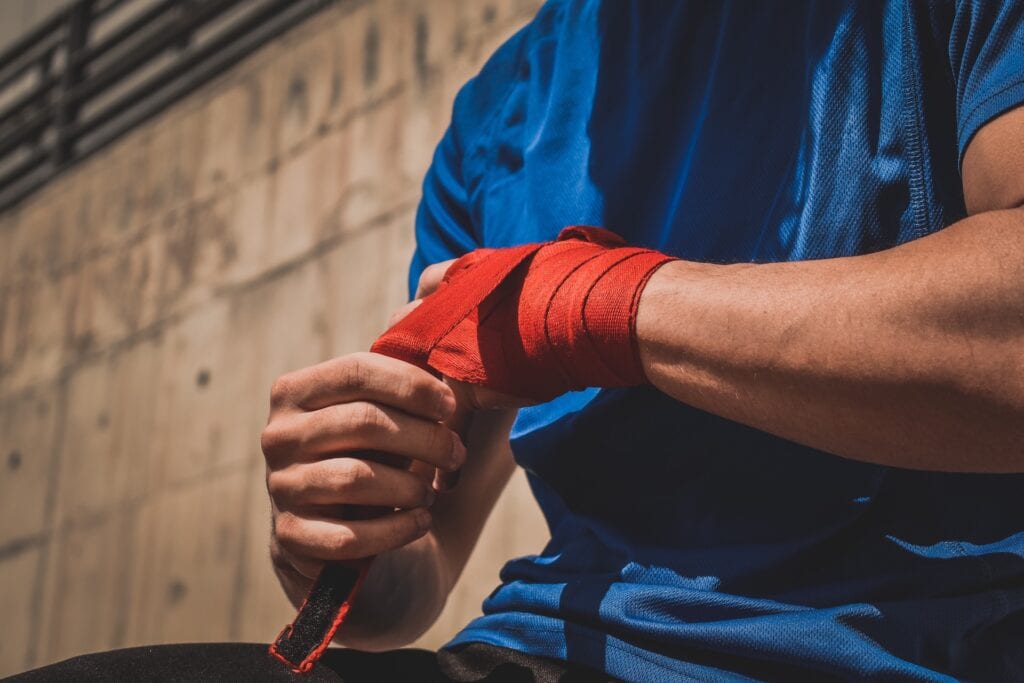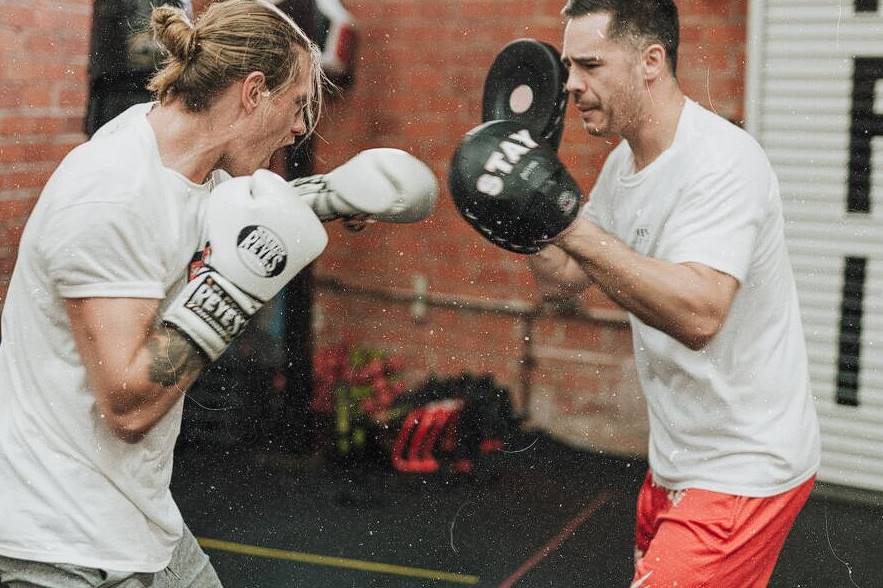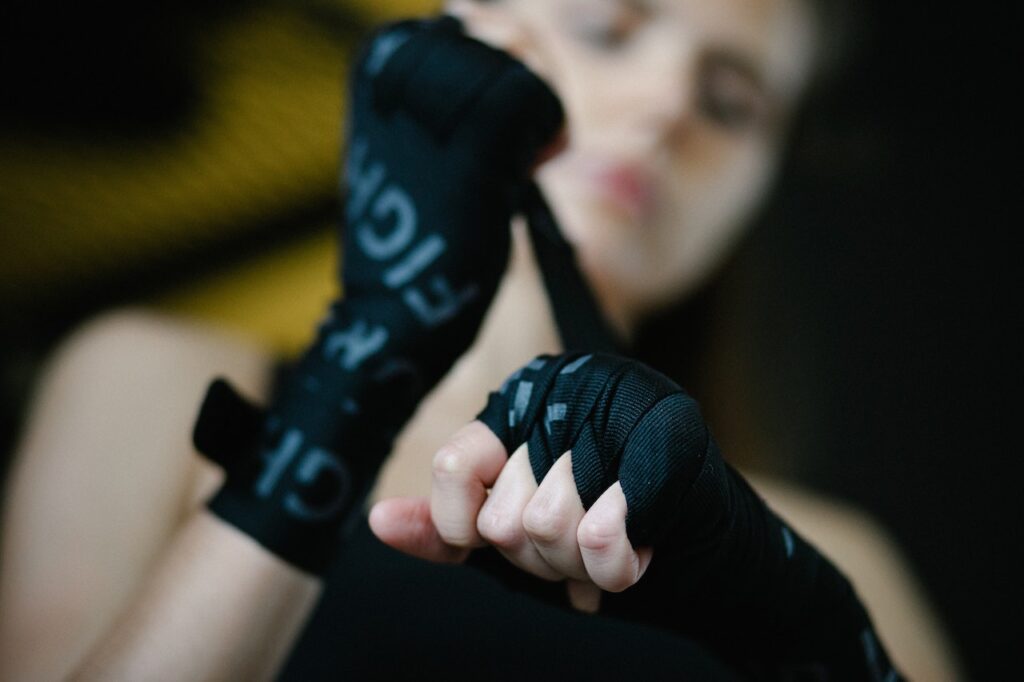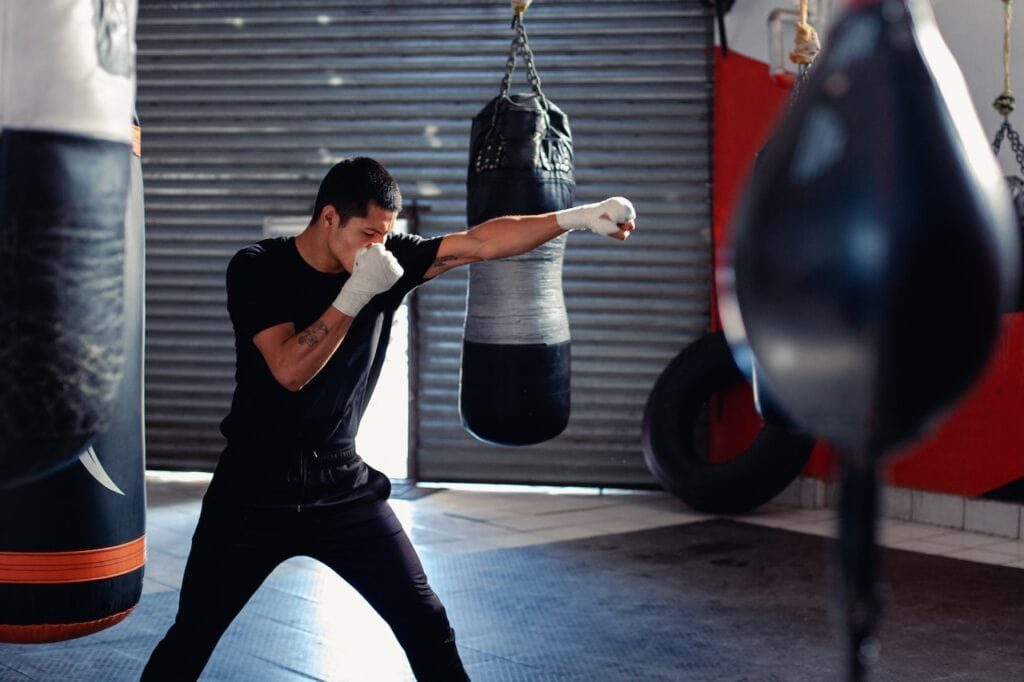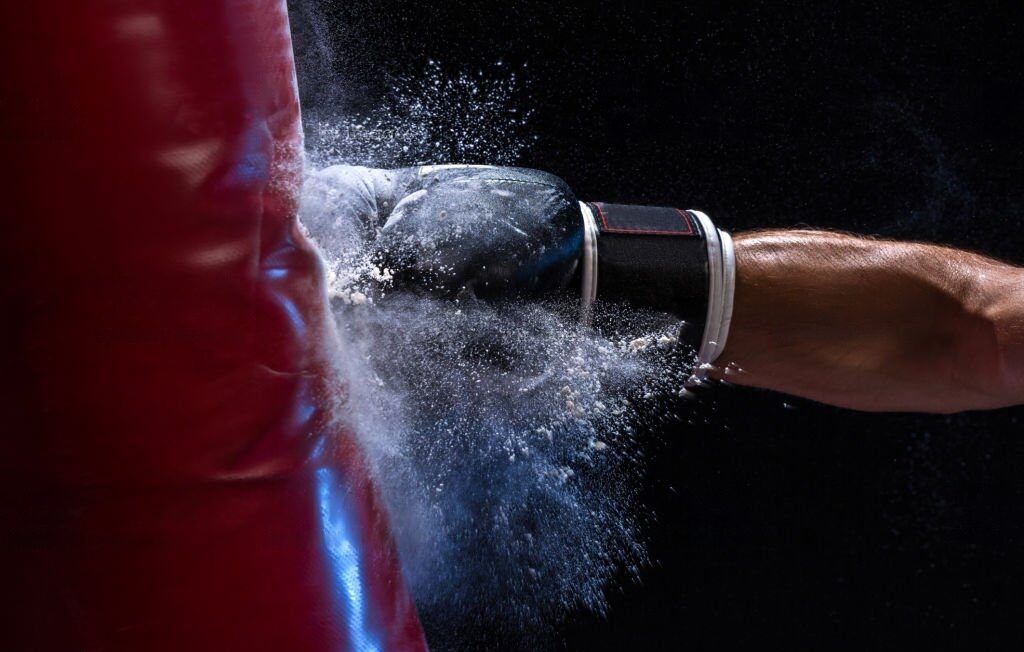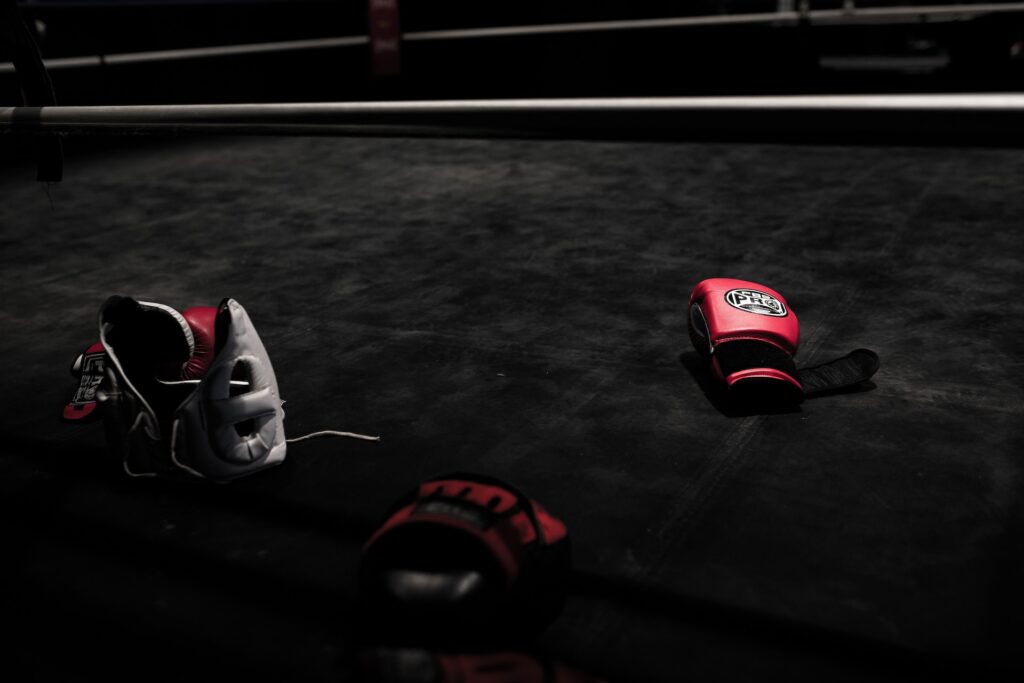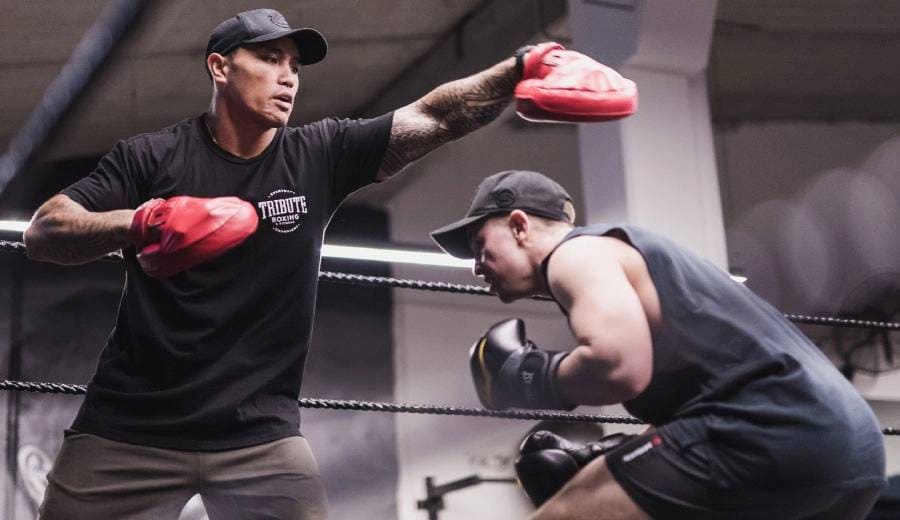Every single one of us faces unique challenges regarding our health and fitness, most notably when it comes to losing weight. Most people, for whatever reason, aim to reduce their body weight by a particular level. They want to see the number on the scale go down, and they also want to see changes in their appearance when they look in the mirror.
We have always emphasised the need to train like an athlete to attain your goals, particularly as a martial arts athlete, if your objectives include losing weight, improving your appearance, and feeling better about yourself.
The training theories used at the top levels of sports are meant to maximise an athlete's physical potential. It is one reason many athletes who compete in martial arts can get into shape quickly and effectively.
Boxers, in particular, are accustomed to staying within the allotted weight range. That's just how the game works. They are aware of efficient methods for losing weight and getting into top physical shape as quickly as possible.
In this piece, we will provide you with some advice modelled after the training routine of a boxer and intended to assist you in achieving the same level of success that they have.
Remember that it typically takes eight to twelve weeks to see obvious improvements, which is why most fight training camps are structured to run for the same time. A good rule of thumb is to commit to any fitness program you start for the entire period. Nevertheless, if you implement these recommendations, you will quickly begin to look and feel like a professional athlete.
How Boxers Lose Weight Fast for a Fight
Both amateur and professional boxers compete in weight divisions that have been predetermined to maintain acceptable levels of safety within the ring. The weigh-in for a fight takes place twenty-four hours before the bout, and each participant is expected to fall inside a predetermined range on the scale.
However, boxers typically weigh significantly more the night after the fight, even though their weight is roughly the same the day before the bout. It is because they drop considerable weight in the lead-up to the weigh-ins and regain it right before the fight.
Maintaining Weight
Although most boxers are required to shed a few pounds on the day of weigh-ins, the easiest method to guarantee that you will be able to compete at your ideal weight is to maintain body weight as close to it as possible throughout training camp.
You can achieve this goal by adhering to a calorie-restricted diet and nutrition program for your weight loss journey. In addition, maintaining a vigorous exercise regimen, including both roadwork and cardio, helps to keep your metabolism revved up, which, in turn, protects you from putting on weight and keeps your current weight stable.
Caloric and Fluid Restriction
Boxers may need to limit the calories they consume when it comes time to begin the weight reduction process a day or two before they weigh in. It is to ensure they do not expend additional weight during this time.
They will also reduce how much water they consume because they know that water weight can accumulate rapidly. Before entering the ring for a fight, boxers can go without eating or drinking for up to twenty-four hours. Fighters instantly rehydrate themselves and ingest many calories after the weigh-in is over to restore their energy.
Sweat it Out
Boxers can shed those last few pounds by working out briskly before stepping on the scale. Running on a treadmill while wearing sweats, cycling in a sauna, or sprinting while wearing trash bags on your body to retain body heat are all effective ways to lose weight swiftly. It is because the majority of your body weight is comprised of fluids. Unfortunately, these methods are extremely harsh, so they frequently cause fighters to appear drawn-out and feeble when they have to weigh in.
Boxers Diet to Lose Weight Fast: Lose 20 Pounds in a Week
Train Hard
Boxers typically practice for four to five hours daily in the days leading up to a bout since boxing training is a high-intensity cardiovascular workout. In the many forms of training involved, such as shadow boxing, sparring, and bag work, participants engage in activities that cause them to burn varying amounts of calories.
Your weight and metabolism determine the specific number of calories you burn throughout your workout and the intensity of your activity; nonetheless, bag work is estimated to burn approximately 500 calories in one hour. Combat training with an adversary is considerably more effective, burning approximately 700 calories in one hour. Put in the work to see some significant improvements (and losses).
Use a Sauna
You may burn calories while recovering from your workouts by sweating it out in a sauna, which is a great way to make the most of your time there. Studies have shown that using a sauna for only thirty minutes can burn between sixty and eighty calories. It also offers other benefits, like eliminating toxins and reducing your water weight, essential for accomplishing a short-term objective such as a weigh-in.
Keep it High Protein
Boxers must ensure they get the nutrition they need to perform at their best. Reducing your calories may seem like the obvious solution, but doing so may cause muscle loss, which you want to avoid before a significant competition. Instead, make it a priority to ensure that most of your meals contain protein so you can recover properly from all of your workouts.
The more muscle you have, the higher your metabolic rate will be, implying that you will burn more calories even when resting. Maintaining a high protein intake through the consumption of lean, protein-rich foods such as quinoa, spinach, salmon, and chicken breasts will not only keep you full for longer but will also reduce your cravings.
No Sugar
Complex carbs, on the other hand, have the potential to make you feel less while proteins continue to keep you full. In addition, long periods of exercise can leave you hungry, leading you to seek a quick snack. However, packaged meals are typically loaded with sugar and sodium, which will have the opposite of the desired effect on your performance.
Instead, consider reducing or eliminating added sugar in your diet. Due to the addictive nature of sugar and carbohydrates, this will also reduce cravings. Bread and pasta should also be eaten in moderation, and you should replace them with complete meals wherever possible.
Stay Hydrated
Although it may seem counterintuitive to continue drinking water while trying to reduce the amount of water weight you carry, it is important to make sure you keep track of how much water you are consuming. It is not necessary to drink an entire gallon of water every time you feel thirsty; rather, you should consume it in place of sugary sodas or energy drinks to maintain a healthy electrolyte balance and forestall feelings of hunger.
Increase That Cardio
Cardio may not be everyone's favourite way to burn calories in a hurry, but it's undoubtedly one of the most effective ways. It would help if you tried to remain active even when not participating in boxing training. Hiking, swimming, and skipping are wonderful activities that will keep your heart pounding; when trying to lose weight quickly, you should participate as much as possible.
Jogging and walking should both be incorporated into your daily routine. Instead of driving everywhere, try walking or jogging there. If you want to go with the fighting look, cover your upper body with a plastic bag and wear it like a vest for some insulation. It will cause you to sweat a lot more than normal. But the typical individual can get by without any increase in exercise, and this will not help you reach your objective of losing fat.
How Do Boxers Cut Weight?
The practice of losing weight in combat sports is a contentious topic of discussion. Fighters, trainers, and fans have different opinions on how much of an edge it gives and whether or not the risk is worth it.
Weigh-ins in professional boxing are often held between 24 and 36 hours before the actual fight. On the scale, the boxer needs to weigh in at a number lower than the maximum weight allowed for the division in which he is competing.
The purpose of a weight cut is to cause the body to become dehydrated to acquire an advantage in size through subsequent weight growth after the fight. Unfortunately, the body goes under a lot of strain during this process. If it is not carried out appropriately, it can result in various unfavourable effects, including the loss of life.

How Do Boxers Cut Weight Fast?
The physical preparation of the body for the fight begins at the beginning of the fight camp and continues for a few weeks after the fight camp has ended. It is possible to prevent the last week from turning into hell by following a diet that has been carefully calculated and that has a sound nutritional plan throughout the entire process. In most cases, the final weight cut will occur five days before the boxer is required to get on the scale.
The broad principles of weight loss are consistent, yet, the specifics of how one loses weight may differ. These concepts may be broken down into a few easy stages. The most important thing to focus on when trying to lose weight is controlling the amount of sodium and water you consume.
Step 1
The final push begins five to six days before the weigh-in by filling the body with fluids to prepare for the competition. On the first day of fight week, most competitors consume between six and eight litres of water.
Step 2
The water consumed is approximately cut in half each day moving forward. In addition, the consumption of carbs is highly restricted.
Step 3
The next stage is letting as much fluid out of your body as possible through sweating. Typically, this is accomplished by spending extended periods in the sauna and engaging in low-intensity activity on a treadmill or while riding while wearing a sauna suit. As a result, only a little water is consumed the day before and after the weigh-in itself.
Only very brief sips meant to moisten the mouth are permitted. In the final days of severe dehydration, combatants frequently appear drawn out and frail, accurately reflecting their state.
Step 4
As soon as the boxer gains weight (meaning that he is within the class's weight limit), the fighter can begin rehydrating and putting on weight again. It can be accomplished by consuming a great deal of water (about 1 litre per hour) and eating excessive food.
Do not get into the trap of thinking that this entails consuming excessive junk food. On the contrary, the body is still subjected to the stresses of battle, and to achieve peak performance, it must be fueled in the most efficient manner possible.
What Do Boxers Eat When Cutting Weight?
The modification of water intake only accounts for half of the equation. The nutrition the boxers follow is almost as crucial as their training, and if it isn't done right, it might end up sabotaging their entire endeavour.
When you are trying to lose weight, you should get most of your energy from protein, and carbohydrates should be avoided at all costs. It is because they aid in the retention of water, which is the exact opposite of what you want to do.
Unsurprisingly, not all forms of protein are created equal; the best protein sources are high-quality meat, eggs, and dairy products. Salt is another component of the diet that is vital to the weight loss process. In the body, sodium binds to water and stores it, which is the opposite of what you want right now because you need as much water as possible. Salt is sodium.
Some competitors turn to the assistance of natural diuretics to shed the additional water. However, because of athletes' widespread abuse of diuretics, most anti-doping organisations have decided to ban their usage. As a result, this is not something that is encouraged.
If the weigh-in goes well, carbohydrates will become your best friend again because they supply the energy required for the fight. They will also assist in the regaining of lost weight and the retention of fluids. In contrast to refined sugar and the many other forms of prefabricated junk food, rice and potatoes are both excellent sources of carbs.
How Much Weight Do Boxers Typically Cut?
The amount of weight loss experienced by a boxer is highly variable from one fighter to the next. For this reason, all recommendations are expressed as a percentage of the total body weight.
In mixed martial arts (MMA), weight cutting is typically much more extreme than in boxing and wrestling since the extra weight matters more in MMA. Another issue that is sometimes disregarded is that there are several divisions in boxing, each with a difference of 6-7 pounds between them. Therefore, it enables a greater number of competitors to compete in weight classes that are closer to their actual body weight.
However, it can be difficult for casual fans to keep track of the various weight classes and an even greater number of organisations named alphabetically and their respective belts.
It is common for mixed martial arts competitors to drop as much as 15 per cent of their body weight before the weigh-in yet to regain the majority by the following day. For instance, a fighter competing in the 170-pound division would enter the cage weighing around 195 pounds.
Boxing has more stringent standards regarding rehydration than other combat sports, and certain governing bodies, such as the International Boxing Federation (IBF), have regulations that forbid boxers from gaining more weight than the amount agreed upon beforehand. It is done to prevent excessive dehydration strategies, which are harmful to one's health over the long term.
Boxers often experience a weight drop of about 5 per cent of their starting weight during training. Therefore, increasing the percentage to 8% should have a minimal long-term effect on the body.
Quickest Way to Lose Weight Fast
You will drop a lot of weight quickly if you stick to this plan, but it will just be water weight.
As your body is mainly water - the quickest approach to losing weight is to get rid of most of that water.
You will bring about a state of dehydration in your body by subjecting it to the regimen for five days. At the pinnacle of the process, you'll have dropped anywhere from 15-30lbs, and then put it all back on in the next 24 hours.
It would help if you did not attempt to keep your new weight; the only justification would be to reach a certain weight class target by a certain date. However, it is not a weight loss regimen that can be used for any purpose.
You will rehydrate as soon as the weigh-in is finished immediately, and all of the weight you swiftly dropped will return even quicker because your body will absorb every drop of water you give it. You are, then, out of luck if you believe that you can trim the fat off of your abdominal muscles according to this program. However, there are better, safer, and easier methods that won't make everyone around you want to kill you. One of those alternatives is the one you should choose.
Now, here's how it's going to work.
Starting five days before the fight (D Day1)
- Start restricting water consumption. On the first day, you'll drink a lot more water than you normally would, which will instruct your body to get rid of any potassium and keep any salt. You will first begin to flush out water, and then as you begin to reduce your intake, the increasing levels of sodium proportionate to the water in your body will continue to draw water out of your cells for excretion. This process will continue even after you have stopped flushing out water.
- D-5 - drink 2 gallons (7.6L) of water
- D-4 - drink 1 gallon (3.8L) of water
- D-3 - drink 1 gallon (3.8L) of water
- D-2 - drink 0.5 gallons (1.89L) of water
- D-1 - drink 0.25 gallons (0.94L or 945mL) of water
- D Day - no water until after the weigh-in.
- Carbohydrate intake should be kept to less than 50 grams per day. Consuming carbohydrates will cause the body to take in more water and will result in the replacement of glycogen stores in the muscles. If you reduce the number of carbohydrates you eat, you will keep flushing water out of your system and reduce the glycogen stores in your muscles. Because glucose is the fuel for your brain, which carbs give, this factor will significantly impact your mood.
- Consume both fat and protein. Because you have to eat, replace those carbs with high-quality proteins and fats if you want to reduce the carbohydrates you eat. An abundance of both meat and vegetables.
- Avoid all salt. Because salt can absorb water and will work to hold it within the body, the more salt you have in your system, the more difficult it will be to keep the flushing process going.
- Make a lot of sweat. At this point, the images of boxers wearing garbage bags while sitting in saunas come into play. Although I wouldn't advise doing that, you should try to work up as much sweat as possible.
Taking extremely hot baths where you submerge every part of your body (except your nose) for ten minutes is the quickest and easiest way to sweat.
When it is both hot and humid, you will sweat significantly more than when it is just hot. Because taking a bath prevents your sweat from acting as a cooling mechanism, it causes you to sweat more quickly.
Then, one to two days before the weigh-in, you begin sitting in the sauna to put the finishing touches on your rapid weight loss.
5. A natural diuretic. If you are approaching the weigh-in but are still 1 to 2 pounds over your target weight, consider taking a diuretic like dandelion root, which will help you expel even more water from your body.
And there you have it: in just five short days, you will have shed more weight than you ever dreamed was physically possible for someone your size.
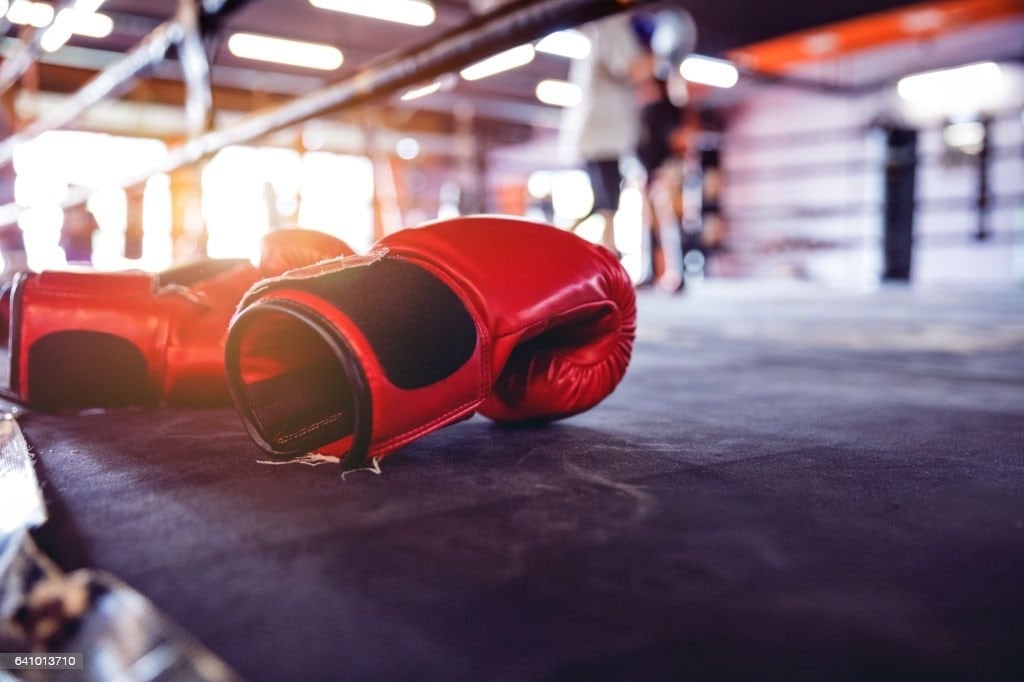
5 Things Pro Boxers Do To Lose Weight Fast
1) Road Work
Running is one of the most common forms of training for boxers since it helps them improve their cardiovascular endurance and burns many calories. However, Roadwork is also important to a boxer's physical conditioning routine.
Running is an excellent way to eliminate excess energy since it promotes a steady and effective metabolism for burning calories. In addition, it's easy to get started, and anyone can participate. You'll only need a pair of comfy running shoes, and you'll be good to go.
Most boxers log a few miles of running daily, particularly when they are in the midst of training camp and are working to bring their weight down. However, a light jog of thirty minutes once every other day will give you fantastic benefits, even if you are a regular person. You could even throw in some quick walking; the point is to do anything that will consistently keep your heart rate at a raised level for a predetermined amount of time.
2) Two-A-Days
Most people exercise once daily for an average duration of one hour. But have you ever wondered how professional boxers become in such great form in such a short amount of time? The trick is to train twice a day, every day, and even thrice a day for extremely determined people.
Fighters refer to this type of training regimen as "two a day." Boxers typically get up very early in the morning to get in their workouts before attending to other responsibilities throughout the day, such as employment or issues relating to their families. After lunch, they participate in a brief period of rest, and then they resume their training in the evening.
In other instances, it is common for fighters to train thrice daily. These are shorter workouts. They typically last forty-five to one hour and concentrate on a certain routine facet. For instance, morning sessions could centre on strength training and fitness, but afternoon or evening sessions could focus on boxing techniques and strategy.
3) Eat Clean
A healthy, well-balanced diet high in nutritious, wholesome, and unprocessed food is essential to any strategy for successful and efficient weight loss. However, when it comes to getting rid of excess weight, the other half of the equation, and unquestionably the most crucial half, is maintaining a healthy diet.
According to a well-known proverb, one does not get six-pack abs in the gym but rather in the kitchen.
Boxers follow a fairly regimented eating plan to ensure that their bodies make the most of the fuel they take in from the food they consume. They consider the food they consume more than something; rather, it is the fuel they must show in the ring successfully.
Eating clean for boxers entails paying strict attention to the proportions of the three macronutrients (protein, carbs, and fat) in their daily food. They give it a scientific approach by weighing every gram of the food. Most high-level fighters choose to work with nutritionists who are hired specifically to assist them with this training component.
It may be as easy as just making the correct decisions when it comes to food, such as selecting grilled chicken and a salad rather than a double cheeseburger with fries and a beverage as our main course.
4) Ample Rest
Rest and recovery is an area of fitness frequently neglected but is one that fighters take extremely seriously because of its importance. Rest and recovery are significant in transforming the human body into a machine. It is especially important following arduous training sessions in which the body is pushed to the limit.
The body benefits tremendously from regular napping throughout the day, which may appear contrary to common sense. After each bout of training, boxers typically nap to recover. For example, boxers often take a short nap after their morning strength and conditioning program, waking up a couple of hours later in time for lunch. It allows them to focus better on their fights. As a result, the body is calm, revitalised, and prepared to engage in an additional strenuous activity just a few hours later.
Ensuring you receive at least eight hours of sleep each night is also essential. Some boxers even use melatonin pills to help them attain deep slumber.
However, rest and recovery need more than enough sleep to eliminate weariness. There are also more recent approaches to healing that need to be taken into consideration. Cryotherapy and zero gravity chambers are two examples of athletic rehabilitation technologies that have found a place in combat sports in recent years.
5) Remove Distractions
Boxers eliminate any external sources of distraction before entering training camp. When they are in camp, most of them must make significant sacrifices, such as cutting themselves off from their friends and family. However, it allows them to devote their full attention to training and achieving their fitness goals.
You don't need to go to the extreme of checking into a hotel by yourself, away from civilization, to be able to concentrate on your physical fitness. First, however, you should remove any harmful factors from your life that may be affecting your ability to maintain a balanced diet and exercise regularly.
One example would be reducing the time spent on social media or occasionally declining an invitation to spend the evening with friends eating and drinking to an unhealthy excess. Keep things straightforward and, rather than putting yourself in a position to fail, do everything you can to put yourself in the best position to succeed.
Conclusion
You are now an expert in the techniques utilised by boxers and fighters to cut a significant amount of weight rapidly. But, unfortunately, it is by far the most ineffective method for losing weight, even though it is also the quickest.
If you are not a professional fighter who needs a weight advantage for competition, you have no reason to engage in this activity.
However, while having this knowledge gives one power, it also poses a risk. Therefore, make judicious use of it.
To summarise, the following are the five things you should do beginning five days before the date you want to reach your goal weight:
- Be sure to ingest a lot of water.
- Then it would help if you immediately began dramatically reducing the amount of water you drink.
- Steer clear of carbohydrates.
- Avoid coming into contact with the salt.
- Strive to sweat a lot and use a diuretic when necessary.
The next step is to rehydrate yourself and refill your fuel by drinking one litre of water every hour and eating as many healthy carbohydrates, proteins, and fats as you like once you have reached your goal.
Frequenly Asked Questions
Do diet pills have any side effects?
Some diet pills may have side effects, although they can vary between products and individuals. Common side effects may include nausea, headaches, insomnia, dizziness, or digestive discomfort. It's important to carefully read the product labels, understand the potential side effects, and discontinue use if any adverse reactions occur. If you experience severe or persistent side effects, it is advisable to seek medical attention immediately.
Can diet pills be used in conjunction with exercise?
Yes, diet pills can be used in conjunction with exercise to support weight loss efforts. However, it's crucial to understand that diet pills should not be relied upon as the sole method for weight loss. Regular exercise, along with a balanced diet, is essential for long-term weight management and overall health. It's recommended to consult with a healthcare professional or a fitness expert to create a comprehensive plan that combines diet, exercise, and any supplements you may consider.
Can I take diet pills while on medication?
If you're currently taking medication, it's crucial to consult with your healthcare provider before starting any diet pill regimen. Some diet pills may interact with certain medications, potentially affecting their efficacy or causing adverse reactions. Your healthcare provider will be able to provide personalized advice based on your specific medication and health condition.
How long does it take for diet pills to show results?
The time it takes for diet pills to show results can vary depending on several factors, including the individual's metabolism, lifestyle, and adherence to a healthy diet and exercise routine. While some people may notice changes within a few weeks, it's important to approach weight loss as a gradual process rather than expecting immediate results. Consistency and patience are key when using diet pills as part of your weight loss journey.
Do diet pills require a prescription?
Not all diet pills require a prescription. There are both prescription and over-the-counter (OTC) options available. Prescription diet pills are typically recommended for individuals with obesity or weight-related health conditions and are prescribed by healthcare professionals. OTC diet pills can be purchased without a prescription but still require careful consideration and adherence to the recommended dosage.

